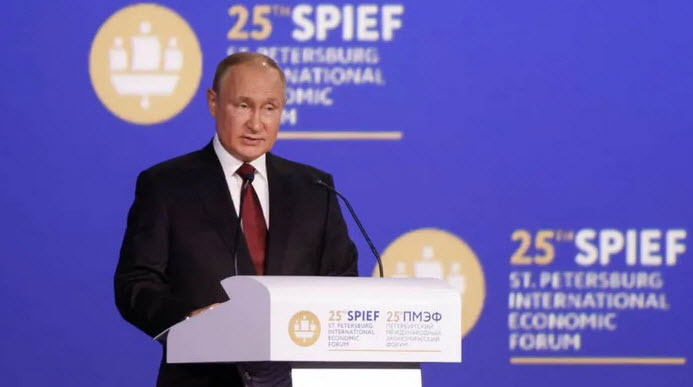
Most people think of Vladimir Putin's background as a KGB agent and the number of opponents falling out of windows lately certainly speaks to that.
What most casual observers don't know is that Putin has a law degree where he specialized in international trade. Secondly, he earned a PhD in economics while writing his thesis on: "Strategic Planning of the Reproduction of the Mineral Resource Base of a Region under Conditions of the Formation of Market Relations"
It's widely seen as a poor thesis (and perhaps plagerized) but it's undeniable that Putin has long had a deep interest in commodity markets.
Igor Danchenko and Clifford Gaddy at The Brookings Institution studied Putin's thesis and in 2006 gave a presentation on it.
The first lesson he drew was the influence of food insecurity on Putin's thinking: His brother starved in the WWII seige of Leningrad. He also saw how food security broke down in the collapse of the Soviet Union as deputy mayor of St. Petersburg. At that time, private sector gas-for-food deals were struck but many ended in disaster due to graft or companies not fulfilling oblifations.
Putin realized that the ultimate currency that a Russian official can have at his disposal is raw materials. It is therefore not surprising to find a lengthy list of strategic materials in Putin’s 1999 article, where he lists basic foods along with uranium, oil and gas, and other materials. To sum up the first lesson, during cataclysmic events, Russia’s ultimate guarantee of survival, and subsequently of wealth and development, is natural resources. Since they are essential to Russia’s survival and security, they should always be kept in strategic reserve.
"Putin realized that the ultimate currency that a Russian official can have at his disposal is raw materials," Danchenko wrote. A second lesson he leared was that private companies can’t be trusted."
That too explains the number of opponents -- particularly in the energy sector -- that have died under mysterious circumstances.
The authors wrote that Putin's economic and political thought has been systemic and consistent.
"He sees Russia’s mineral resources as the only 'hard currency' that ensures not only the economic and political security but also the very survival of Russia. Mineral resources are the ultimate insurance for overcoming any crisis, and they represent a disaster contingency plan."
Skip ahead to just this month and Putin's speech at the St Petersburg International Economic Forum. In it, he lamented western money printing and said:
"The economy of mythical entities is inevitably being replaced by the economy of real values and assets."

That harkens directly back to his thesis and he follows it with a more-granular prediction:
He says a sale of global FX reserves will soon get underway.
"They will be converted from weakening currencies into real resources like food, energy commodities and other raw materials. Other countries will be doing this, of course. Obviously, this process will further fuel global dollar inflation"
With that in mind, the next domino to fall is the EU ban on Russian oil and oil products on December 3. That's likely to be coordinated with the G7-backed Russia oil price ceiling, which could be as low as $50/barrel.
US Treasury Secretary Janet Yellen is convinced the west has the upper hand here but Putin has been training for this moment his entire life. Weaponizing oil in the same way he's used natural gas is far from unthinkable.
Meanwhile, there are reports of a broader military mobilization and there's a speech from Putin that's rumored for today. A year ago central banks hiking rates by 100 bps and an energy crisis were unthinkable. One man has the power to unleash another round of volatility; don't underestimate him.



